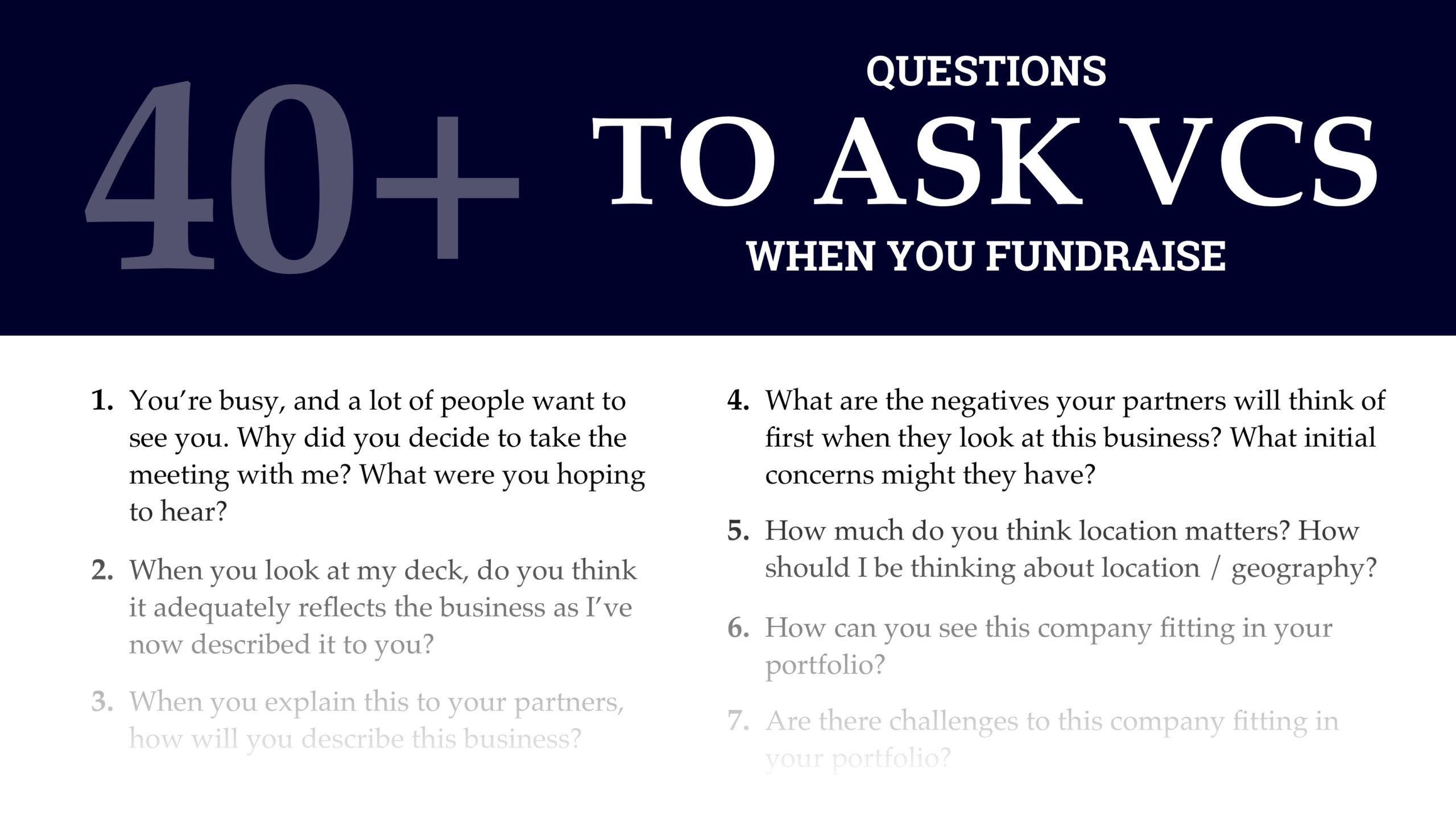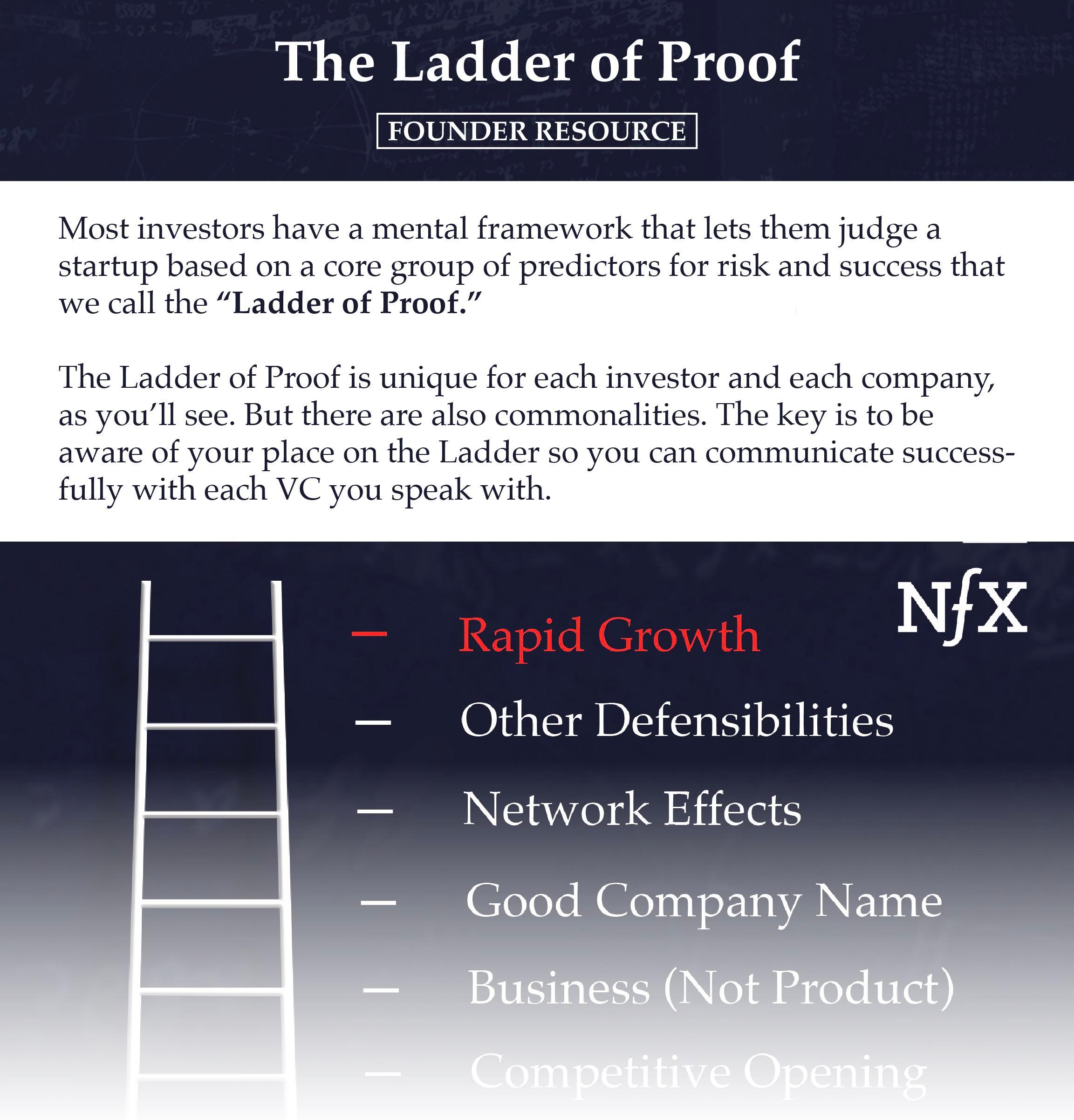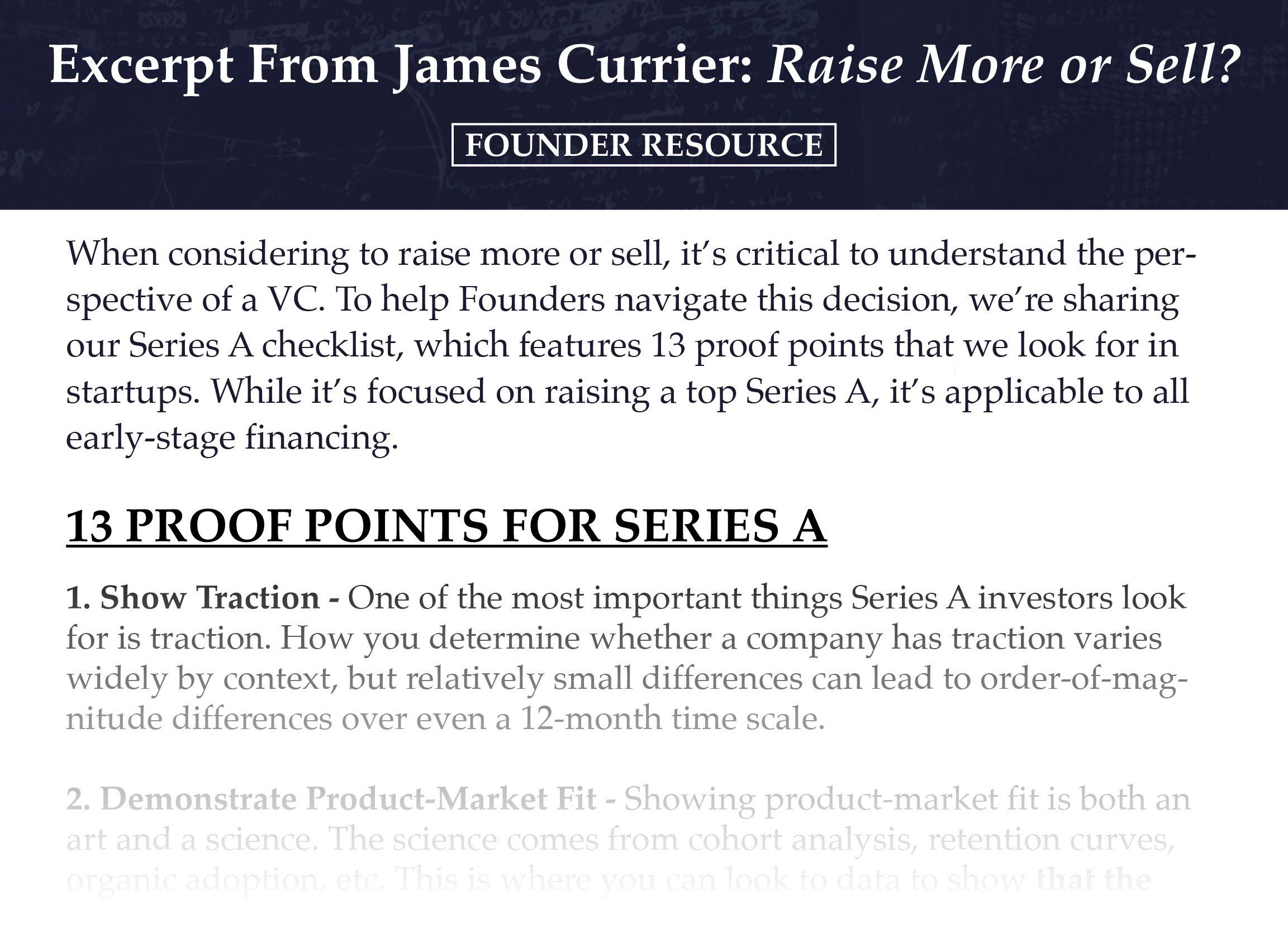

Top-performing Founders know something that others do not: when you meet with VCs, don’t just fixate on getting their money — learn from them.
For any given meeting with a VC, the chance it will result in funding is between 1% and 10%. That means you have 90+% probability that you will not raise money from this person. So if that is your only goal for that meeting, you are wasting 90%+ of your meetings.
It’s better to view the meeting as an opportunity for you to build your company using the information you get from the VC, not just the money you might get. This will give you a higher return on your time.
Remember that investors see 1000s of companies and have invested in 10s or 100s of them over their careers, which means they’ve likely seen different insights than you have. They see and hear things that you may not. This wealth of experience is sitting right in front of you. You just need to know what to ask, and how.
Get Into The Right Mindset
- Come to VC meetings as an equal, not as if the VC is above you, or below you.
- Collaborate in discussion, don’t just try to go rapid-fire through all the ideas in your head.
- “Pitch” meetings are badly named. They are better seen as strategy meetings.
- As a Founder, your #1 job in building your startup is to learn fast. VC meetings are no exception.
- Use the first part of this strategy meeting explaining what you know about your business so far, not simply “pitching.” Then the vast majority of remaining time should be spent asking the VC questions and engaging in a dialogue as collaborators.
- The ratio looks like this: If you have 10 minutes, explain what you know about your business for 4, and ask questions for 6. If you have 30 minutes, explain for 8 minutes, discuss for 22. If you have an hour, explain for 12 minutes and have a discussion prompted by your questions for the rest of the hour. You should have a large appendix in your deck that you can refer to during the discussion period.
- The VCs you talk to are likely to give you different pieces of advice because there is no one right answer. But over many meetings, you will cobble together the right advice. You’ll then be able to improve your business and move up the ladder of proof so that investing in your business becomes a no-brainer.


To help Founders get into this mindset, I’ve collected over 40 great questions that I’ve either used myself or observed from others in pitch meetings. These are questions that every Founder should ask in his or her meetings with VCs. We’re sharing them today as a resource to help Founders open up the dialogue and start building more authentic, open relationships with their investors — starting with the very first meeting. After all, these could be decades-long relationships, even if the VC doesn’t invest this time around.
More important than the questions themselves, though, is adopting a learning mindset and using these collaborative conversations to establish Founder-VC fit.
Note: Some of the questions below are similar. This is because how you ask something matters. In particular, it’s good to use the questions on this list to get outside yourself and ask from the perspective not of “my company” but “this company I’ve shown you.” Because that’s how your strategy consultant — the VC — is looking at it.
Getting a Sense of How Your Company is Viewed
1. You’re busy, and a lot of people want to see you. Why did you decide to take the meeting with me? What were you hoping to hear?
2. When you look at my deck, do you think it adequately reflects the business as I’ve now described it to you?
3. When you explain this to your partners, how will you describe this business?
4. What are the negatives your partners will think of first when they look at this business? What initial concerns might they have?
5. How much do you think location matters? How should I be thinking about location/geography?
6. How can you see this company fitting in your portfolio?
7. Are there challenges to this company fitting in your portfolio?
Flipping the Script
8. What is the one thing you think I’m underestimating or being naive about?
9. What are the main barriers you see to our success? What are the main concerns you have that could cause you not to invest?
10. Can you really see your partnership investing in this company?
11. After what I’ve described, are there patterns you’ve seen in the past (positive or negative) that would apply to this business? E.g. ad tech is dead, hospitals are a horrible customer, sales teams are great customers, etc.
Competitive Landscape
12. How many other companies have you seen that seem to be targeting the same sector?
13. Have you seen somebody try this business and fail or succeed in the last ten years?
14. How common is this idea in the world already? Have you ever seen anything like this before?
15. Are there successful companies this startup reminds you of? Any good analogies? (e.g. the “Craigslist” of farming equipment)
16. Do you get the sense that we’ll be able to defend this business once it’s up and running?
17. Are there any companies you think it’d be natural for this company to partner with either now or in the near future?
18. Is there anything I’ve shown you that is on trend with other companies you’re seeing?
19. Now that I’ve explained the business, what sectors would you categorize it in?
Addressable Market
20. Does the way we’ve calculated TAM feel right to you?
21. The way I’ve calculated TAM is on this slide. Is there another way you could think of calculating the TAM?
22. Could we redefine our market to make it a bigger market? E.g. Airbnb TAM as home rentals vs. much bigger Airbnb TAM as hotels.
23. What’s your opinion of the niche this company is targeting to enter this market? In talking this through, is there any sub-segment of the market where you think the fast-moving water will be?
24. Can you see this being a billion-dollar company? Why or why not?
25. What do you think are the biggest opportunities ahead of us in this space?
Level Up Your Fundraising Process
26. If this company were to go public, what would you expect the fundraising history to have been? What would you expect about the future financing and dilution characteristics of this business?
27. I’d like to fill in this round from a few smaller checks from angels and advisors. Can you think of anyone who would be dynamite to advise me on getting this going even if you don’t invest? (Make it clear that you’re not asking for an introduction.)
28. Other than you, who would you recommend being the best type of investor for this type of business? Does anybody come to mind? I’m not asking for an introduction.
29. If you had somebody else helping you evaluate this company, whose opinion would you trust?
30. I understand that statistically, the chances of you investing in this company are only 1%-10%. I don’t want an intro, but I’m just curious, who else would you expect I’m talking to about raising capital?


The Right KPIs
31. What’s the main metric that would prove that this is going to be a great business?
32. What sort of traction metrics would make investing in this business a no-brainer? Where does this company sit on the ladder of proof based on what you know?
33. What experience have you had with companies that try to distribute on the channel(s) that I’m planning to use? And what were your lessons with companies working with that channel?
34. When this company is worth $2B and we look back, what do you think the likely path is that the business would have taken to get there?
How Your Team Measures Up
35. On a scale from 1 to 10, how much do you think we have founder-market fit or founder-product fit?
36. What attributes do we need to be excellent at to make this business work? What are the skillsets and expertise where we need to be world-class to succeed? E.g. Digital marketing expertise, being a supply chain guru, etc.
37. Just meeting me, do I feel like the kind of person to make this business work?
38. When you look at the team that I’ve assembled here, how would you compare them to other investments that you’ve invested in?
39. Talk with me about the team you see here. What are the pros and cons of the team I’ve built so far?
40. Who would you like to see me add to this team in the next year?
41. What are the top cultural characteristics that this company would need to have to be successful? Being aggressive? Careful and frugal? Highly compliant? Breaking the rules? Sales driven? Tech driven?
Collaborate As Equals
The best Founder meetings I have are collaborative discussions instead of one-way pitches. They feel like conversations between equals. It’s potentially the start of a 7-10 year collaboration to build a business together, and Founders and VCs should both understand that this relationship starts with that very first meeting.
In asking VCs questions about your company, have the confidence to listen to criticism without succumbing to the impulse to go on the defensive. You have to overcome your fear of rejection and failure to get the most value out of the fundraising process. If you’re able to do so, it elevates your status in the eyes of the VC because it signals confidence. It also demonstrates your commitment to being a fast learner.
VCs are a resource. They are pattern recognition machines that have been trained by thousands and thousands of data points from the startups they’ve seen. They’re a strategic wellspring of the startup ecosystem that is there for you to avail yourself of. If you ask the right questions, VCs can help calibrate your business, help you avoid costly mistakes, and ultimately get your startup to become the best version of itself and maximize your chances of success.
It all starts with asking the right questions.
As Founders ourselves, we respect your time. That’s why we built BriefLink, a new software tool that minimizes the upfront time of getting the VC meeting. Simply tell us about your company in 9 easy questions, and you’ll hear from us if it’s a fit.
